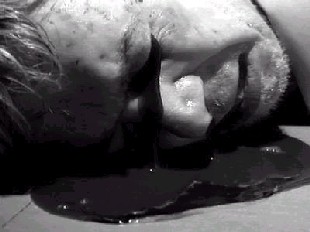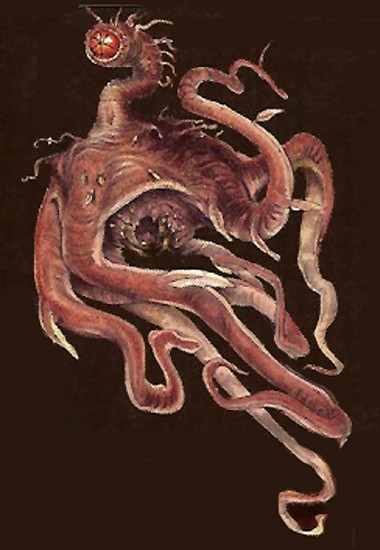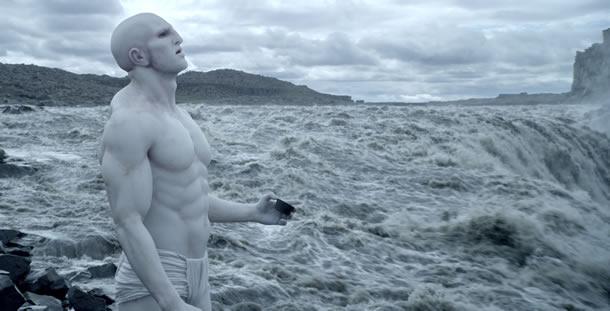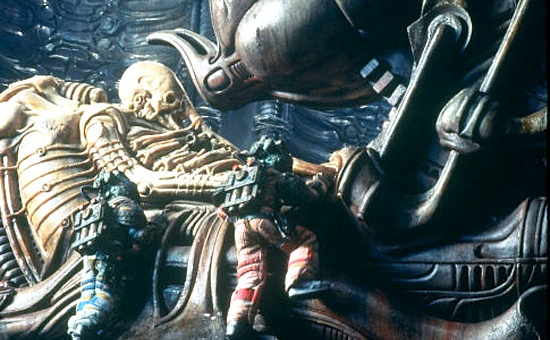There’s been a certain amount of backlash against Ridley Scott’s latest movie, Prometheus. Complaints about plot holes and unanswered questions, pacing, a muddled, patchy script and an overall hokey Erich von Daniken-esque quality compared to the dark, gritty universe of the original Alien and its subsequent sequels, Aliens and Alien3. (Let’s not include Alien Resurrection, which seems an entirely different beast to me).
[Spoilers ahead read no further if you haven’t yet seen the movie.]
Something I love about Scott’s original Alien movie is the fact that the world and the characters who populate it are credible and recognizable, which is what makes the situation they find themselves in both believable and nightmarish. The idea that a bunch of blue-collar space workers are sacrificed by The Man in an attempt to procure an utterly hostile being for the company’s weapons division is a powerful theme that resonates long after the film is finished. For this author, that resonance has continued ever since I first saw the film in 1979—it’s easily one of my favorite movies.
So I approached Prometheus with an open mind. Apart from watching the first trailer and reading a couple of early reports (I knew it was to feature the Space Jockey from the original movie in some way), I went into it avoiding all potential spoilers, so I got to see itI hopeas intended. I think I will go to see it again on the big screen. And look, I’m not going to add anything to the fray. But I thought I might offer a few ideas that will help you to enjoy the movie again a second time around, if you have a mind to:
 First off, what was the black goo, and why did it affect people in different ways? Is it a weapon, or a tool for creation? Well, whatever you think it was, it was a masterful performance from the Black Oil, last seen in The X-Files. I’d heard on the grapevine that it’s been looking for a way back into showbiz for several years. This is the perfect part, of coursewe all know it got typecast after filling up people’s eyes for years on that seminal nineties show. Everyone knows the story of how it couldn’t nail the role of the oil opposite Jake Gyllenhaal in Jarhead, so it’s nice to see him back in action in a role he was made for.
First off, what was the black goo, and why did it affect people in different ways? Is it a weapon, or a tool for creation? Well, whatever you think it was, it was a masterful performance from the Black Oil, last seen in The X-Files. I’d heard on the grapevine that it’s been looking for a way back into showbiz for several years. This is the perfect part, of coursewe all know it got typecast after filling up people’s eyes for years on that seminal nineties show. Everyone knows the story of how it couldn’t nail the role of the oil opposite Jake Gyllenhaal in Jarhead, so it’s nice to see him back in action in a role he was made for.
Also, did you spot The Thing in his special guest star role as the big proto- Facehugger at the end of the movie? I was very pleased to see him back, as I’m a big fan and feel he acquitted himself better in this cameo than he did in that other recent prequel of his own. That the proto-Alien seen at the end of Prometheus comes from a union between him and the Engineer fills me with a kind of super-appreciative fanboy glee.
 Then there are the worms that get evolved by the black oil and attack Fifield and Milburn. Wonderful to see the Dianoga from Star Wars again, doing what he does best. And they even included a role as a sidekick for his pal the Martian from George Pal’s classic interpretation of The War of the Worlds.
Then there are the worms that get evolved by the black oil and attack Fifield and Milburn. Wonderful to see the Dianoga from Star Wars again, doing what he does best. And they even included a role as a sidekick for his pal the Martian from George Pal’s classic interpretation of The War of the Worlds.
Finally, to the Space Jockey himselfwe have Doctor Manhattan back from the Watchmen movie in his role as the “Engineer,” as he’s now known. I was kind of surprised when Doctor Manhattan turned up in Prometheus, as a member of the race who created humankind—but actually, it kind of works. Manhattan is godlike, wise, powerful and not really given to explaining himself. He’s perfect for this role.
So I suppose for me Prometheus is a strange film as it isn’t quite one thing or another. It displays that aesthetic Scott showed in both his earlier SF outingsa supreme sense of design rooted in the exquisite-horrific imaginings of the Euro SF of cartoonists like Moebius and Phillipe Druillet. (Dr. Manhattan seems to me to be loosely evolved from the blue-skinned humanoids who populated some of Moebius’ seventies SF comics, so along with the return of HR Giger’s bone orchards, there’s a beautiful circularity to all this.)

None of this is unexpected, as Scott is a supreme stylist. Perhaps the film isn’t really what I’d hoped it would be, but I’m not sure exactly what I was hoping forsomething a little more coherent perhaps, but you can’t fault the movie for reaching for big ideas and throwing in all manner of shocking sexual imagery. It isn’t all badit has an excellent cast who do what they can with what they’re given, and it certainly looks grandly spectacular. My advice is to go back into that movie theatre and ignore all the problems with the script and just have fun seeing if you can spot all the cameos. I’m sure I must’ve missed some. I sure missed something…
Nick Abadzis is an internationally published cartoonist, graphic novelist and writer. His latest book is Hugo Tate. He lives and works in Brooklyn, NY.










